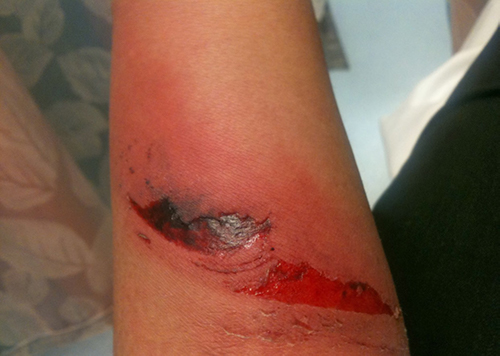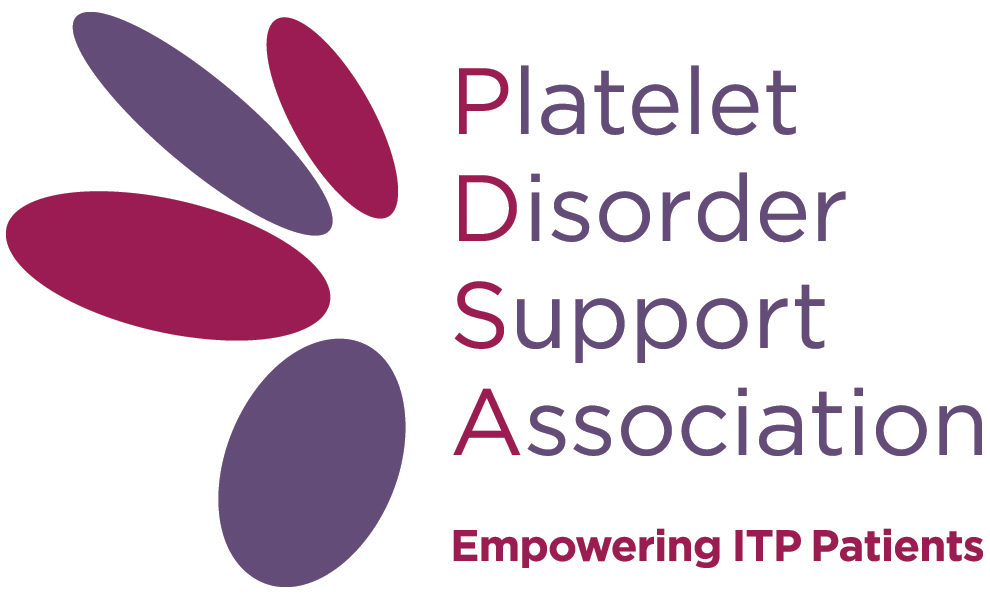BRITTANY'S ITP JOURNEY
 In September of 2005 I was diagnosed with ITP, immune
thrombocytopenia. It was what I thought was a normal day playing a sport that I
loved Volleyball and I noticed abnormal bruising that would not go away.
The bruising lasted for nearly almost a month and I knew something was not
right. ITP is an autoimmune disease in which your body makes antibodies against
platelets. In autoimmune diseases, the body mounts an immune attack toward one
or more seemingly normal organ systems. In ITP, platelets are the
target. For anyone who is unsure, a healthy platelet count ranges from
150,000-400,000 platelets per microliter. My lowest platelet count
throughout my journey before my splenectomy was the number 4.
In September of 2005 I was diagnosed with ITP, immune
thrombocytopenia. It was what I thought was a normal day playing a sport that I
loved Volleyball and I noticed abnormal bruising that would not go away.
The bruising lasted for nearly almost a month and I knew something was not
right. ITP is an autoimmune disease in which your body makes antibodies against
platelets. In autoimmune diseases, the body mounts an immune attack toward one
or more seemingly normal organ systems. In ITP, platelets are the
target. For anyone who is unsure, a healthy platelet count ranges from
150,000-400,000 platelets per microliter. My lowest platelet count
throughout my journey before my splenectomy was the number 4.
One of the most frustrating aspects of living with this disease is the unknown and having to explain. More often than not, individuals are not perceived as “sick” unless they are visibly ill. People think you are faking it, over exaggerating, etc., and do not take the disease seriously because you look healthy from the outside. One of my most scariest days was in 2007. I went into UNC Children’s Hospital for my monthly Winrho IV treatment and I could not stop bleeding. First it started with a nose bleed, my mouth and super heavy menstrual cycle. The Nose & Throat doctor had to be called to my room right away as my nose did not stop bleeding for hours. The most scary feeling in the world is not being able to control your own body. The feeling where you are no longer in control of what is about to happen next. WinRho is a medicine used to treat immune thrombocytopenia (ITP). It is given to increase the platelet count.
 For five years I lived day in and day out with the roller coaster of ITP… massive doses of steroids, blood clots in my mouth, numerous
hospitalizations and weekly blood draws. In January of 2010 I had a successful
splenectomy, but now I have the worry of my platelets being too high. The
spleen is responsible for removing these damaged platelets and therefore
removal of the spleen can help to keep more platelets circulating in the body.
Removing your spleen is a major surgery and leaves you with a compromised
immune system. For these reasons, it's only performed when truly necessary. The
benefits of a splenectomy are that it can resolve several health issues such as
blood diseases, cancer, and infection that could not be treated any other way.
In my case, my spleen had to be removed because of how bad my ITP had enlarged.
An enlarged spleen traps platelets and prevent them from circulating in the
bloodstream.
For five years I lived day in and day out with the roller coaster of ITP… massive doses of steroids, blood clots in my mouth, numerous
hospitalizations and weekly blood draws. In January of 2010 I had a successful
splenectomy, but now I have the worry of my platelets being too high. The
spleen is responsible for removing these damaged platelets and therefore
removal of the spleen can help to keep more platelets circulating in the body.
Removing your spleen is a major surgery and leaves you with a compromised
immune system. For these reasons, it's only performed when truly necessary. The
benefits of a splenectomy are that it can resolve several health issues such as
blood diseases, cancer, and infection that could not be treated any other way.
In my case, my spleen had to be removed because of how bad my ITP had enlarged.
An enlarged spleen traps platelets and prevent them from circulating in the
bloodstream.
I am still not out of the clear being that the Splenectomy worked, but now I have the issue of my platelet count being too high. Everyday in life is a journey but we have to be thankful for what we have. I’m not letting my disease define me. Each and every battle that I have occurred with ITP has allowed me to grow as an individual. ITP has molded me into the person I am today and I am very proud of how far I have come. My passion is to raise awareness for ITP and I am hoping that this walk/run will do just that. I am praying that one day there will be a cure for this disease, but until then we will fight until we can’t anymore.
PDSA is a 501 (c)3 organization.
Contributions are tax deductible to the extent of the law.
PDSA is eligible for corporate matching programs.
PDSA receives NO federal funding.



